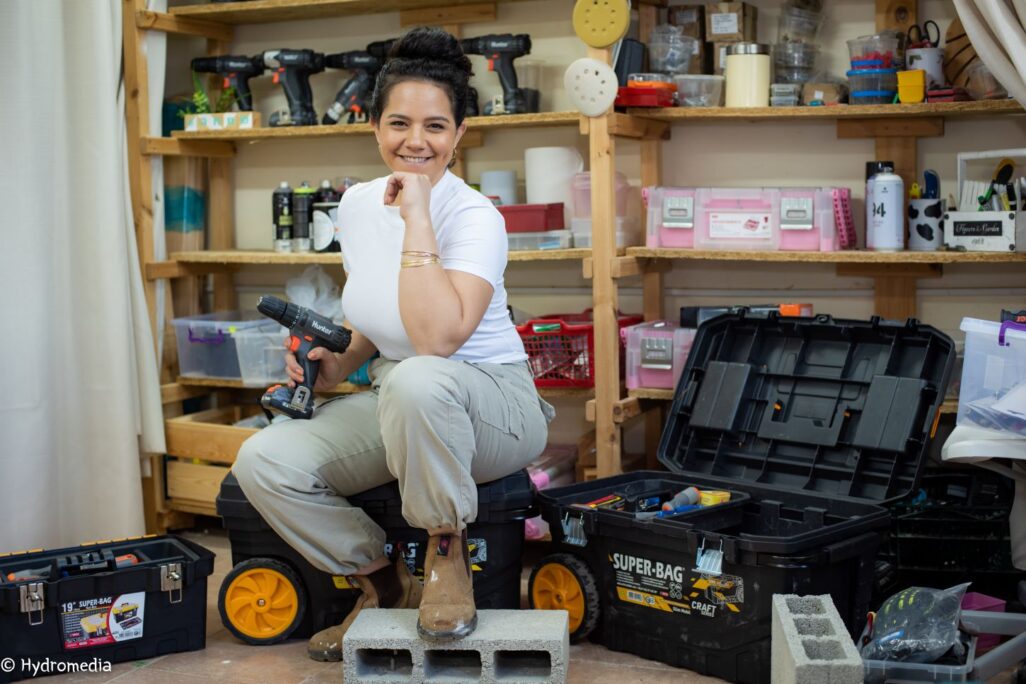
Karin Kakun Hakuki (33) is a handywoman. In a field that is mostly dominated by men, Kakun is paving the way for women, by holding workshops that teach them to make repairs themselves.
"I teach women to work with tools and maintain their home themselves without being dependent on anyone else,” she said. “Instead of paying hundreds of shekels to a professional for the simplest problem, they learn to fix it themselves."
"I've always been in the field," said Kakun, the eldest of three daughters, now married and the mother of a one-and-a-half-year-old. Her father was a military professional and a manly-man – he even built the base he served in with his own two hands," she said. As a child, she did not see handymen at home as her father would fix everything.
"When I was growing up, I became interested in his world, because I wanted to find a place where we could talk,” she said. “I found that it happens when we work together, when I help him build things, fix the vehicles, build the pergola, hold things, help him."
Kakun discovered that she enjoyed handywork. Her father didn't understand why she wanted to learn it, telling her that it was not age-appropriate, which hurt her feelings. She would regularly answer him: “If you teach me how to do it right and guide me, then I won't get hurt and I will learn.”
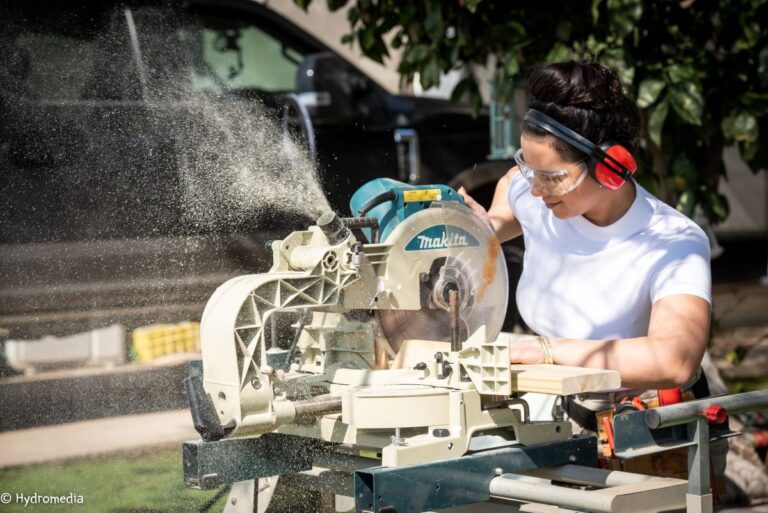
"I realized that I want to work in the field and not in the office"
Upon her release from the IDF, Kakun wanted to study civil engineering. In consultation with her parents, she decided to pursue a more "feminine" profession and study architecture and interior design. Upon graduation, she was accepted to work in an architectural office.
Kakun says that she dressed nicely, arrived at the office and slowly realized that most of the work was "clean” – that the whole theoretical side was not really applied in field construction. She decided to make a change.
"I remember myself sitting on the floor and crying about what I was going to do with myself, and suddenly my father seemed to sense me – he called me and asked what was going on,” she said. “I shared my feelings with him and told him that I want to work in the field. He offered me to join him at work in the meantime."
Kakun’s father, who was released from the permanent service at that time, began working as a renovation contractor. After that conversation, he added her to his ranks.
"I learned everything during this period," she said. "I was the work manager, joining the professionals to learn everything and experience everything. The other workers supported me and loved to teach me."
"Women suddenly realize that they can change a tire for two shekels instead of paying someone 300"
The difficult reality for women in the field of home renovations led Kakun to hold workshops for women. Unlike her, most women do not acquire this knowledge and do not grow up with it.
"I saw them all along my path. Many women turned to me to ask for help with minor repairs, like hanging a shelf,” she said. “They were afraid to approach the task themselves, so I helped and I advised. I realized that there is a real need for women to learn these skills.”
"Each call to a professional today costs 250 shekels, before we even talk about the cost of the repair itself. I found out how much it costs to hang a shelf, and they told me it's around 350 shekels,” Kakun continued. “It's ridiculous, because it's such a simple job. In the workshops I teach women to do it themselves."
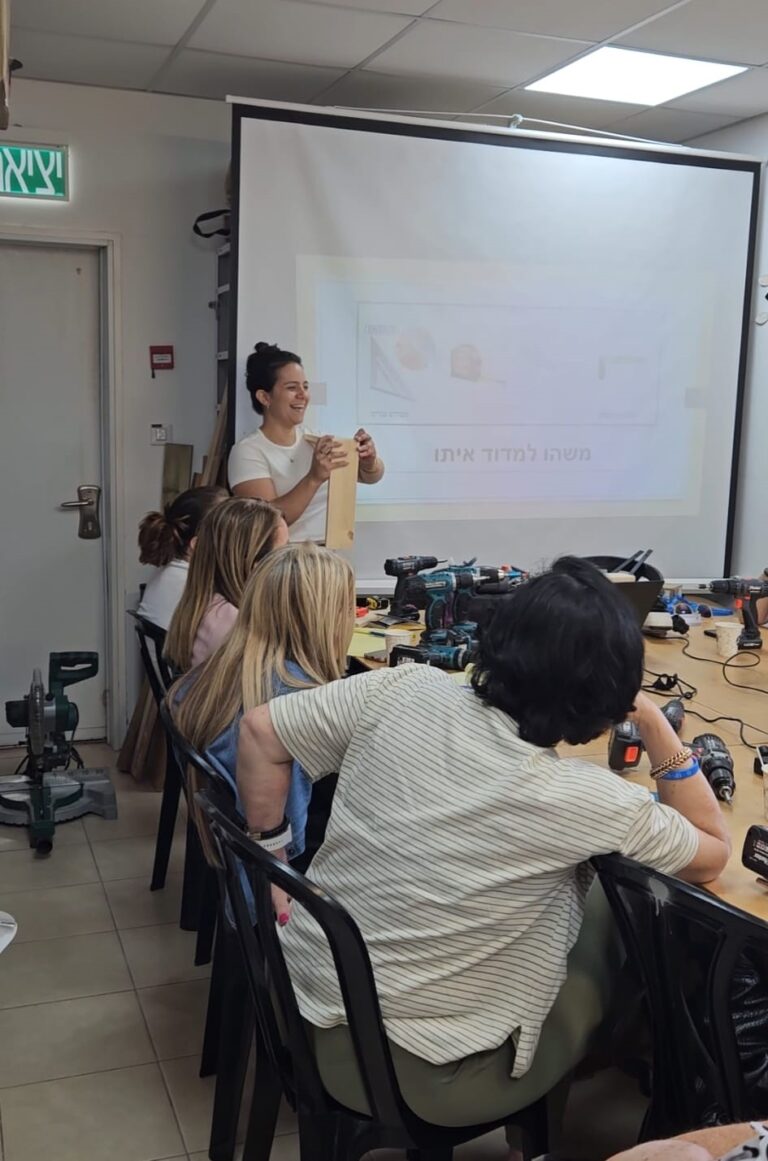
She says that the thing that the women who come to the workshop are most afraid of is using a drill, which is seen as a scary and complex tool to use. The most common question asked is how to drill an electrical or water point, which Kakun teaches in her course.
After the drilling comes the plumbing: how to fix leaks, disassemble and assemble the toilet siphon.
"I show them that 90 percent of the cases of leaks are a rubber band that is torn or dry and the replacement cost is a shekel or two, compared to calling a plumber whose visit alone will cost you 250-300 shekels,” Kakun said. “It blows your mind to understand that it is so simple."
In the workshops of four sessions, the participants also learn how to replace a mosquito net and some carpentry.
"I plan how to build a piece of furniture myself. I show them that 70 percent of my house is furniture that I built for myself or furniture that I adapted for myself,” Kakun said. “I teach how to take plans from Pinterest or Facebook, read them and adapt them to yourself."
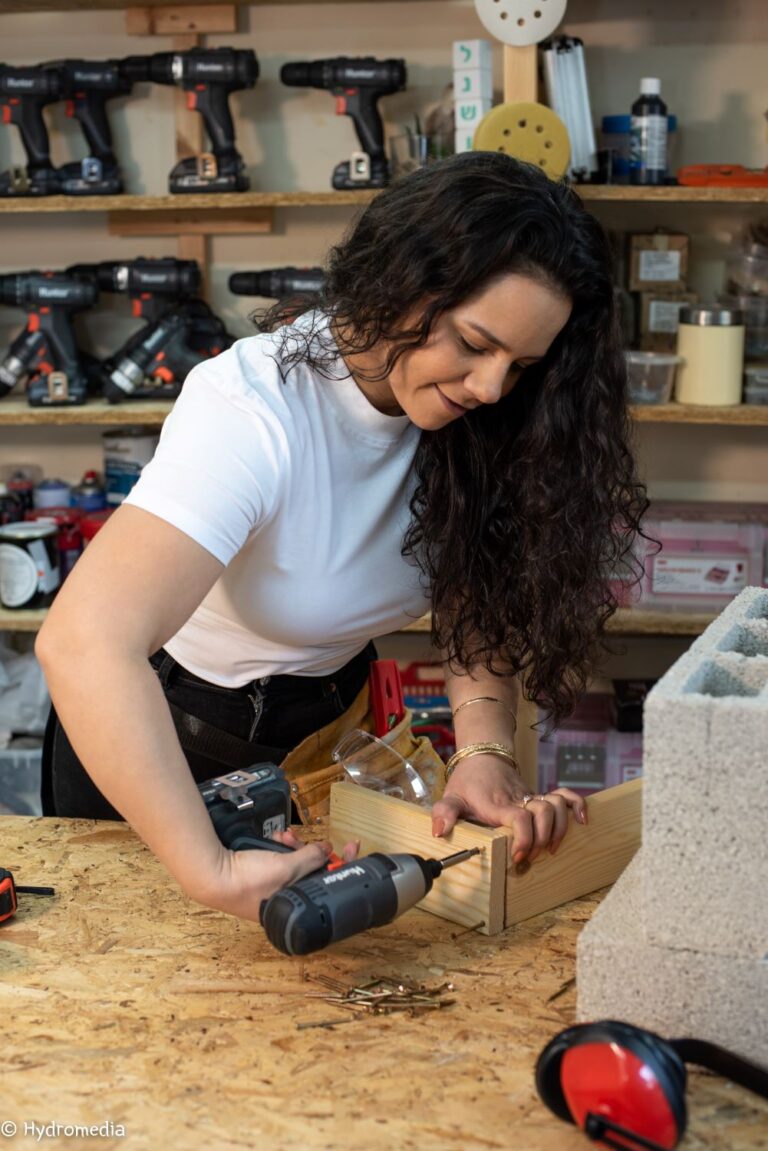
"It's hard physical work, but I know how to optimize it"
Kakun’s workshops have a market that is thirsty for them. Beyond the financial success, she says it's a job that requires a lot of physical effort.
"When I go to the workshops, I take a lot of tool boxes with me, a lot of equipment. It's hard physical work, but I work correctly and smartly and I know how to optimize it," she said.
The issue of lifting the heavy weights required at work has challenged her as a woman. Her eldest son Or, aged one year and 11 months, was born after several years of trying to get pregnant. When she became pregnant, Kakun did not allow herself to carry heavy weights. After giving birth, she returned to activity. Even so, her experience as a woman in the field of renovations is different from that of a man.
Kakun’s workshops are ordered by a variety of parties such as workers' unions, local authorities and high-tech companies, and have both an experiential and a practical aspect.She is sometimes asked to open the workshop to men as well, but usually prefers not to.
"I enjoy teaching women more,” she said. “I enjoy the laughs with them, the experience with them, I prefer to speak in feminine Hebrew. Also, the female harmony in a women-only space is better than when there are men in the group."
If the organizers of the workshop still insist on including men, she asks that it be made clear to the participants that a woman is conducting the workshop.
"Always when there are men in the workshop, they must give 'constructive comments' to me for the workshop,” she said.
"Women gain strength from the fact that they can not depend on a man"
In Kakun’s opinion, the most beautiful thing about her workshops is the human diversity in attendance.
"I have workshops with 20-year-old girls who moved into an apartment and need to maintain it, and with 80-year-old grandmothers. You can learn it at any age," she said. Along with the range of ages, women of all different life situations also attend the workshops.
"There are women who have been divorced and widowed from men who used to do everything at home, and suddenly they find themselves alone, especially older women,” she said. “There are also women who are afraid to bring a man into their home, some of whom have been abused or who have left the field of sex work.”
“There are women who are married to men who don't know how to maintain the house themselves, or are married to men who do know how but don't do it, and they want to do it so they don't have to wait a month every time they want to fix something,” she added.
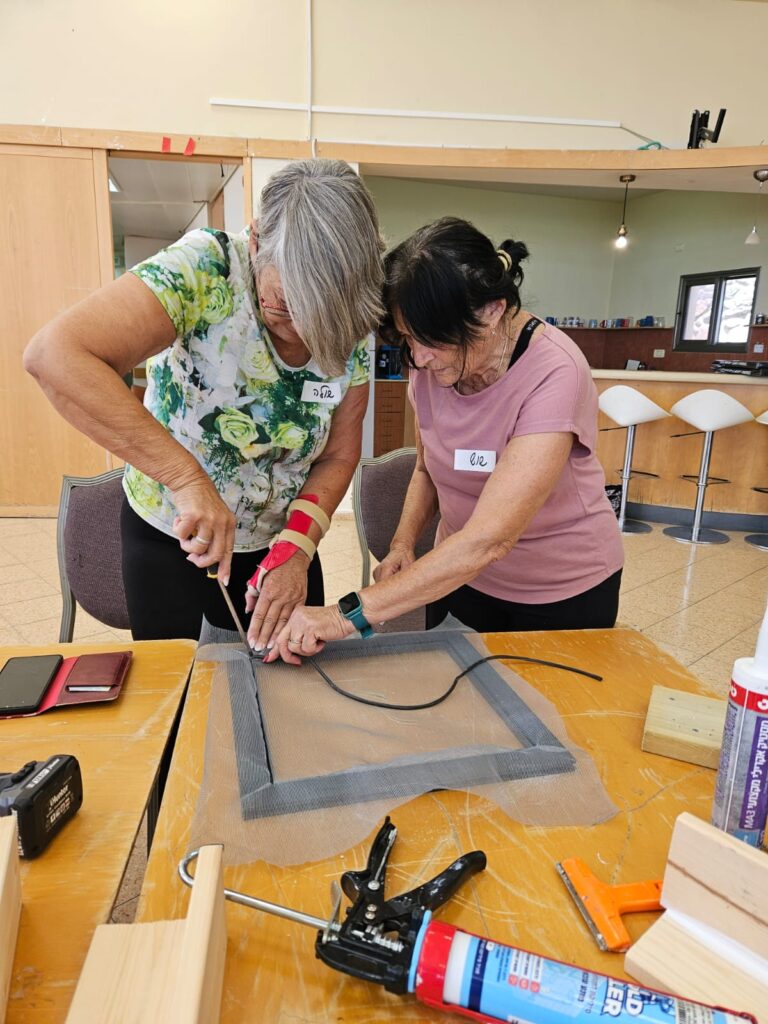
For her, the independence a woman gets in the workshop is the heart of the matter.
"I led workshops in shelters for female victims of violence. You see a woman who says that she was nothing, that she was oppressed and that if she left, no one would care about her at all,” Kakun said. “And suddenly, when she comes to the workshop and is holding a screwdriver or a hammer, it's literally with tears in her eyes that she says to herself : 'I can and I am capable.'"
The supportive female connection continues beyond the workshops.
"I have a WhatsApp group that stays open after every workshop for discussions, questions, consultations and encouraging each other,” she said. “They upload pictures of things they do. I never leave them."
She also has a Facebook group "Ask the Handyman" which is only for women, and where you can ask any question without fear.
"It is amazing to see that there are women who choose to be in the group anonymously, – these are women who did not go through my workshops, but just joined the group," she said.
"There are maybe five handywomen in Israel"
Kakun’s next move will be in the world of digital content.
"Today I create content in the field of renovations, home repairs, and do-it-yourself. I upload a lot of free content videos to the web, so that everyone can really do it themselves," she said.
Kakun’s videos, which are also open to the male audience, receive a lot of criticism saying that her content isn’t new, but she doesn't let that get her down.
"It doesn't matter, because I know someone is standing there, looking and saying, 'Wow, I had no idea.' So I'm here to make this world accessible to them," she said.

Kakun plans to start building her house in a moshav in about a year and a half, and she intends to turn it into a do-it-yourself YouTube show.
"Divorced women come to me and want to build a house. They tell me, 'I'm surrounded by so many male professional contractors, and I have to understand the language,'" she said. "They want to understand if the contractor is using quality materials, that he won't be able to cheat them. I want to make my place accessible to them, so that they can be fully involved in the construction, or even build it themselves."
According to Kakun, you can count on one hand the number of women that work as handymen, with many more in the DIY field.
"I think there is room for everyone to do so much in the world. We are maybe five women tops, compared to there are tens of thousands of interior designers and architects,” she said. “There is really room for as many women as possible. I wish there were enough women who would go for it and have the confidence."
This article was translated from Hebrew by Nancye Kochen.






